INDEX
- The effects of flying on our planet: Terrifying Statstics
- What Does “Sustainable Tourism” Mean?
- Travel More Ecofriendly with These 29 Simple Tips on Sustainable Tourism
- General Travel Tips for sustainable traveling
- Important Steps for Your Travel Preparations
- Tips for Finding an Accommodation that Supports the Principles of Sustainable Tourism
- Small things to consider when you’re staying in a hotel that can make a big difference
- How to travel ecofriendly from point A to B
- How to be a responsible eater and choose your food wisely
- Travel Tips to Support the Local Culture and Preserve Their Traditions
- How to Involve the Locals in the Idea of Sustainable Tourism
- Ideas to reduce pollution directly
- Respect the culture
Have you ever thought about the enormous effect traveling has on our environment? Can you confidently say to yourself that you’re a responsible traveler?
Let’s be honest: I think only a few travelers concern themselves with sustainability. Don’t consider it a reproach, I know how easy it is to become overwhelmed with the euphoria of traveling without thinking about the effects.
If you’re like me in your twenties, you might be familiar with the circumstance of living your life at the limit with less money and a touch of irresponsibility. Personally, I’ve taken many chances low-budget traveling. Cheap flights and less effort, going far away from home I flew a lot and returned after several weeks home again. Sustainable? Not at all.
The effects of flying on our planet: Terrifying Statstics
If we bear in mind that the tourism sector is one of the fastest growing industries and that there is a growing number of people longing for an independent lifestyle going on sometimes reckless travel adventures, we should at least be aware of the long-term effects our travel behavior might have on the future world.
Now take this as a comparison: If you drive with a mid-range car for a whole year (ca. 12,000 km), you produce only 2,000 kg CO2. [1]
Considering the fact that by 2050 climate change might lead to the extinction of 30% of species and 50% loss of the Amazon rainforest [2], we all must consider with the concept of sustainable tourism if we want to be responsible travelers.
What Does “Sustainable Tourism” Mean?
[1]
To clarify which effects mass tourism can have on a local culture, take this as an example: if you have traveled to Bangkok, you might have recognized the huge standardization of food, souvenirs, or accommodations. At nearly every corner you can buy the typical Thai pants with elephant patterns, get “Pad Thai” or buy t-shirts with the printing “Same, same, but different.” Places like this are partly reconstructed to fulfill tourist expectations, leading at the same time to the loss of authenticity.
Moreover, Bangkok fights with many environmental problems that are partly caused by mass tourism. Air pollution, for instance, is mainly caused by vehicular emissions. According to a 2010 report of The Pollution Control Department (PCD), the levels of PM10 have exceeded national standards. [3]
The aim of sustainable tourism is to avoid such negative impacts whereever possible. With some small changes, we can all support the countries we visit and travel more responsible. If you want to know how you can preserve the beauty of our planet while traveling the world, consider the following tips on your next adventure and share them with other travelers you meet! ?
What did the British author Simon Reeve once say?
“Responsible travel is not only better for our world, it’s also more interesting and memorable. Responsible tourism is the future of travel.”
So, let’s get ready for this small journey to a more sustainable world… ?
Travel More Ecofriendly with These 29 Simple Tips on Sustainable Tourism
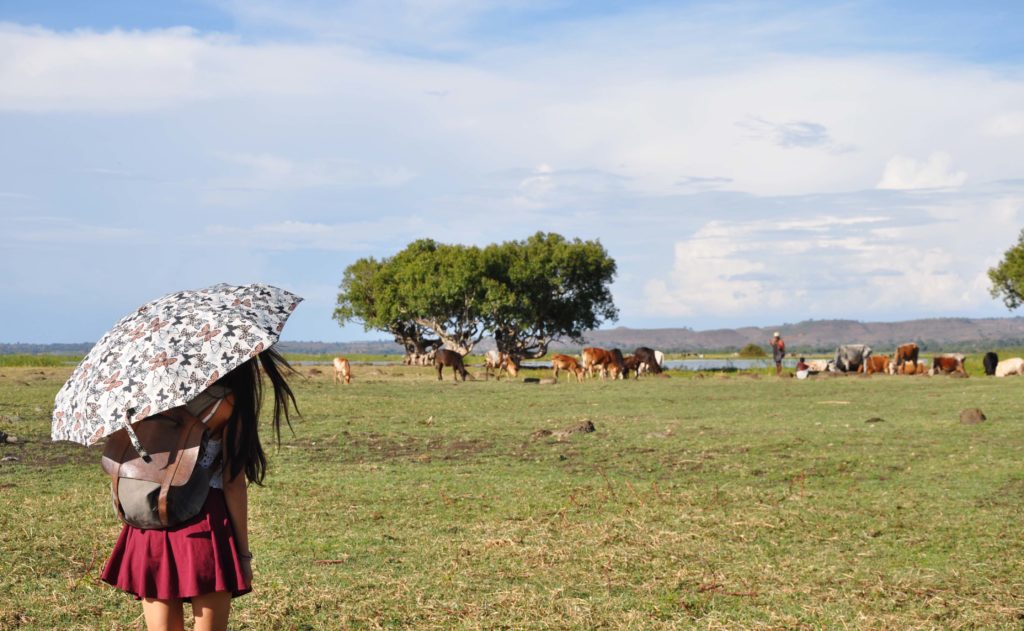
General Tips for Sustainable Traveling
Stay longer at one place
Do you have time to travel for several weeks? Are there some other places close to your main travel destination that you’ve always wanted to visit?
Then take the opportunity to make daytrips to these places. This way, you’ll reduce CO2 emissions. If you’re always heading home after one destination and decide to travel to the surrounding places again later, you’ll cause unnecessary CO2 emissions flying back.
Extra tip: Choose a flight with a longer stopover in another country to see more destinations using the same flight. An easy way to kill two birds with one stone! ?
Choose closer destinations
I’m sure you know the well-known saying “The grass is always greener on the other side”. But must it be on the other side of the world? If you open your eyes to the small things in your surroundings, I’m sure you’ll find many beautiful places that you haven’t seen before – even in your own hometown.
In my article “How to live more consciously” you’ll find some tips on how to discover your hometown with new eyes! ?
Try to fly less often or think about compensating your CO2 emissions
Flying can be much more comfortable than using other transportation. However, we all know that it’s also the transportation method that uses the highest CO2 emissions.
The good thing is: if you still choose to fly, you can easily compensate your flight by donating money to different climate projects. The amount you pay is calculated based on your emissions. For example, the climate protection organization Atmosfair uses these donations to compensate greenhouse gases through renewable energies. Your contribution will support developing countries in which renewable energies hardly exist.
You can consider this as second best solution for traveling far if you can’t avoid flying. The advantage of choosing another transportation method is, however, that you not only help our environment, but also get the possibility to see even more wonderful places on your way!
Travel with less luggage
Another way to reduce easily CO2 emissions is to take less with you. Leave behind things that you can also easily get cheap at your destination and take only necessary stuff with you.
Important Steps for Your Travel Preparations
Inform yourself about the country of visit
An important part of sustainable tourism is to understand and respect the local culture. Learning about the history and culture of a certain travel destination will give you a unique travel experience. You’ll not only gain a better understanding for the local culture, but will also enjoy your trip with a little bit more background knowledge. What’s the point of visiting a sightseeing without knowing even a slice of history about it?
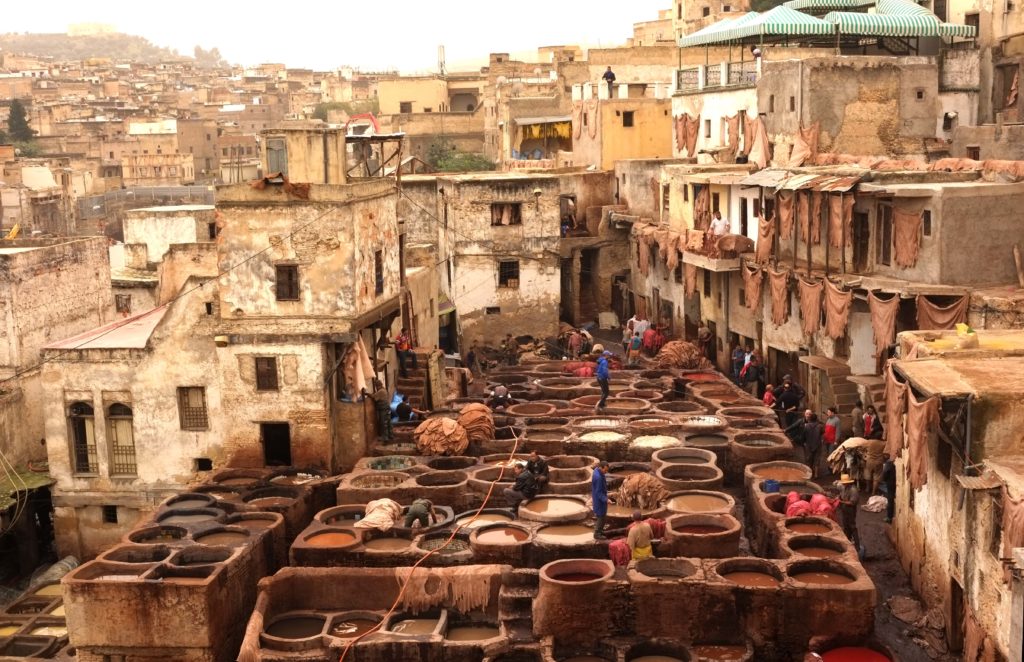
A great way to get closer with the locals is also to learn the basics of their language.
Extra Tip: I recommend the app Duolingo to learn a new language. You could also download a mobile dictionary and use it offline to look up vocabularies during your traveling.
Contact locals for insider travel tips instead of relying on commercial travel guides
Do you want to immerse yourself in an authentic way into a local culture and avoid mass tourism?
Take some time before your next trip to reach out to some locals. You can use, for example, the platform Couchsurfing to contact them or browse Facebook groups to find authentic information.
Tips for Finding an Accommodation that Supports the Principles of Sustainable Tourism
Avoid all inclusive and support the locals income in the countries you visit
Even though it might sound more comfortable to stay in an all-inclusive hotel, you’ll exclude the locals from a big part of the tourism incomes. Many all-inclusive hotels also offer quite standardized food which is adapted to the western taste.
And isn’t the fun and excitement behind traveling discovering new local dishes? ?
Choose an ecofriendly accommodation or stay in a local hotel
Choose a local hotel above a hotel chain. If you want to stay in an accommodation that supports principles of sustainable tourism, you can check out the website Green Pearl. These accommodations not only preserve the local nature, but also supoprt local economy and culture.
Check ecofriendly seals before you choose a hotel
To find out, if an accommodation supports the idea of sustainable tourism, check hotel websites for ecofriendly seals. Trusted certificates are for example from Tourcert (worldwide), Viabono (for Germany), EMAS (for Europe).
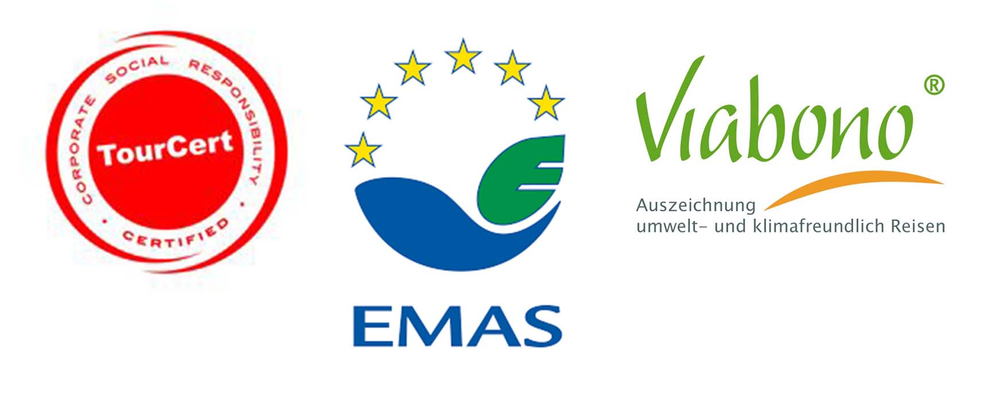
Small things to consider when you’re staying in a hotel that can make a big difference
Use your towels several times
Therefore, think twice the next time you’re staying in a hotel about washing your towels every day. You can easily contribute to saving water and energy by reusing your towel several times.
Most modern hotels use an energy saving scheme, turning off the electricity when guests remove their key from a docking station, reducing energy consumption by 30%. [5]
If this energy-saving technology doesn’t exist in your hotel, always think about turning the lights off and unplugging your electricity when leaving the room. An uncomplicated way to reduce your energy usage!
Only use the air conditioning if necessary
Better open the window at night if you can survive without the AC. Air conditioning systems have a high energy demand and therefore add enourmously to CO2 emissions.
Let this sink in as an example of the excessive usage of air conditioning:
Extra tip: Instead of turning the AC on, hang a wet towel in front of your window to cool down the room. While it’s drying, heat is extracted from the air leading to the cooling of the room.
How to travel ecofriendly from point A to B
Choose ecofriendly transportation methods
Is your destination reachable without a car?
It can be even more fun to discover a city with a bike, by foot, longboard, inline skates or whatever. You’ll discover many small corners that you wouldn’t have discovered with a car. Moreover, it’s not only a more sustainable, but also healthier method to travel.
I totally agree with Peter Gokin’s notion:
“My two favorite things in life are libraries and bicycles. They both move people forward without wasting anything.”
Many modern cities also offer e-bike rentals which are far less expensive than renting a car. If your destination is reachable by water transport, why don’t you decide to take non-motor sail trip? This could be an adventure of a different kind! ?
Use public transportation or rent an electric car
Using public transportation significantly benefits the environment by reducing the number of cars on the street.
According to studies of The Federal Transit Adminstration (FTA) report in 2010…
As you can see, you can easily contribute to the practical realization of sustainable tourism by using public transportations. Another great idea is to rent an electric car, if you have the opportunity.
How to be a responsible eater and choose your food wisely
Try organic restaurants with locals produce
Just like when your choosing a hotel, restaurant selection plays a big part in sustainable tourism. By choosing a local restaurant you’ll continue to benefit the local economy and community. On top of that, you’ll discover the authentic local food and immerge fully into a new culture!
If there are sustainable restaurants available, you should support them. Inform yourself beforehand about sustainable places to eat out. Where do restaurant owners get their food from? What food choices do they offer? In many countries, vegetables and fruits are planted on organic farms and are used in the local restaurants.
Buy your food from local markets instead of international supermarkets
By visiting local markets you’ll find more fresh, organic, local foods and will get into direct contact with venders who are often also the same time local farmers. If you’re interested in what people traditionally eat or how the food is produced, a stop at the local market should be on your travel to-do-list!
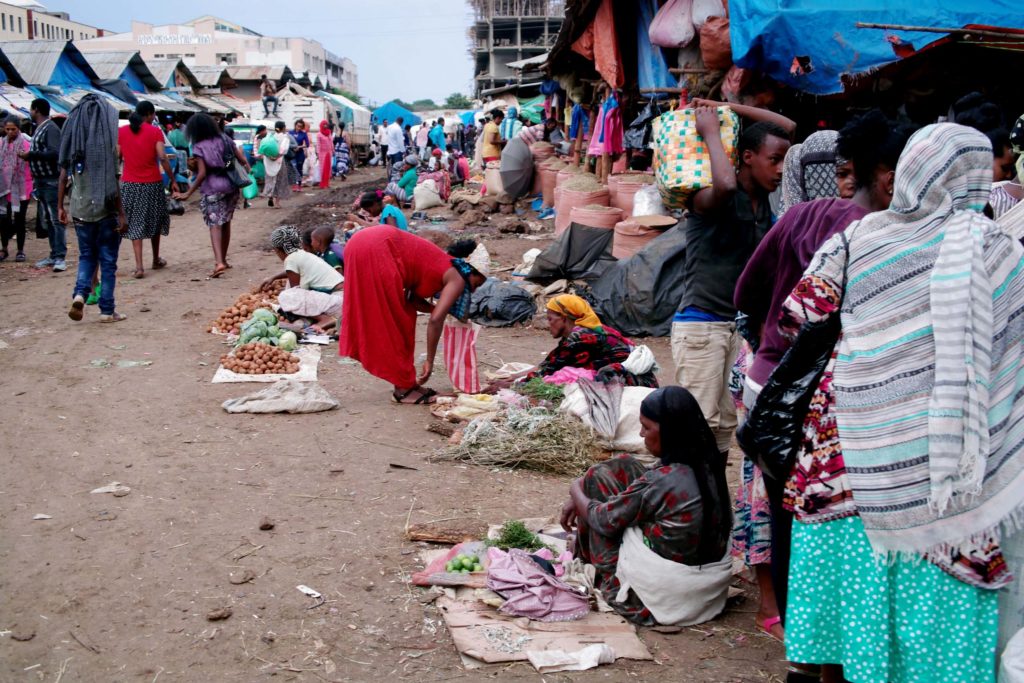
Avoid eating endangered animals
There is food that some people consume regularly which belongs on the list of endangered animals. Pangolins, sharks, turtles or certain types of fish, like Red Tuna belong to this list. Although it’s exciting to try out new food, you should inform yourself in advance which animals shoud be left in the wild.
The website Seafoodwatch listed the seafood that you should avoid eating.
Buy local products instead of imported ones to support local businesses
If you buy handmade products instead of imported ones, you’re not only showing your appreciation for the individual artisan’s work, but also helping the local economy by supporting local business owners who produce quality products.
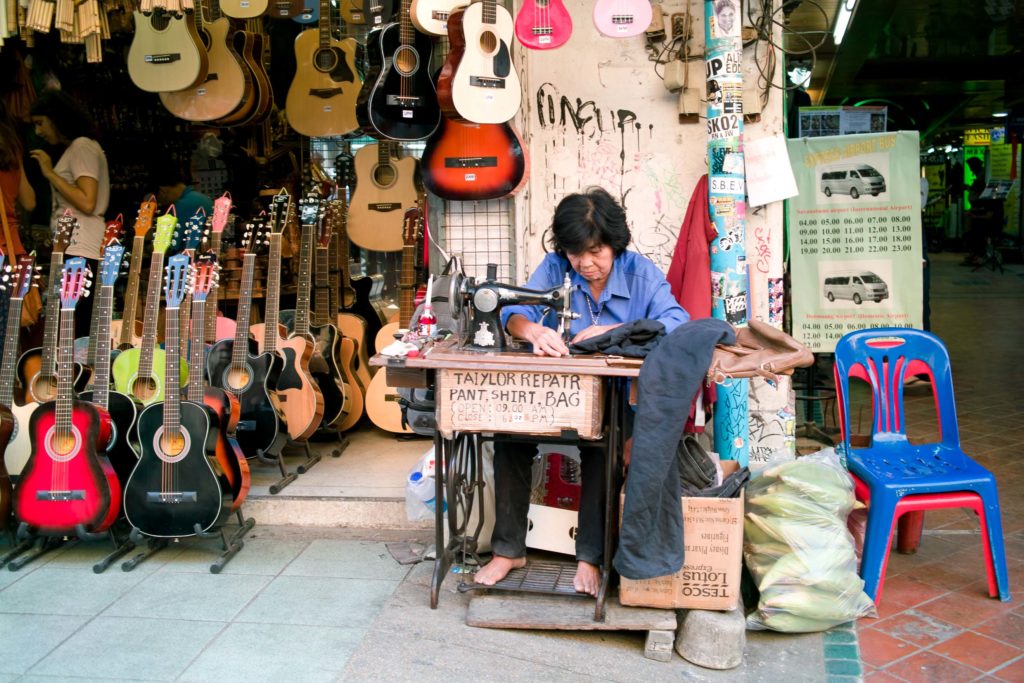
There’s also sometimes interesting traditional history behind handmade products. It’s always interesting to find out how they’re produced and how they’re linked to the past. And isn’t it sweeter to buy something that has been made in a traditional way with love than a mass produced product that you can buy anywhere? ? Imported products are often cheap labor products from low wage countries which have been transported from far away countries.
Support local charities
Look for some local charities that could use your help. If you don’t have much time to volunteer, you could also simply promote their idea on social media platforms or donate some money for their project.
Give appropriate tips to locals
In many countries, people only earn low wages and are therefore reliant upon tips. If you liked the food in a restaurant or the city tour of your guide, you should give them a small tip to support their business.
BUT: Always inform yourself about tips in your travel country. In some places, it’s seen as an offense to give tips.
How to Involve the Locals in the Idea of Sustainable Tourism
In many popular travel countries, people aren’t well educated about protecting nature. However, there are some ways how you can involve local people directly into environmental projects and help them to develop a feeling for our environment.
I spent six months in Dahab in Egypt and took part in some environmental projects which helped locals to understand the importance of preserving our nature. So what can you do to spread the idea of sustainable tourism as a traveler?
Go to schools and teach kids about sustainability
Environmental problems are caused mainly because many people lack an awareness and are disconnected with our nature. The best we can do is create a better consciousness for the beauty of our planet, starting with children.
You could go to schools in your travel destination and teach children about our nature. A good way to evoke their interest is by encouraging active participation. Think about some games you could play with them to get them involved or show them short documentaries.
Organize clean ups or recycling projects with the locals
When I was living in Dahab, I organized a beach clean up with my former work place CoworkInn Dahab and supported amongst others the environmental project Dahabibi of my friends whose main aim was it to create an environmental awareness for Dahab’s beauty.
How did we motivate people to join the beach clean up in Dahab?
For the beach clean up, we created a Facebook event and invited locals to join. We promoted the event mainly over our social media platform and posted it in several local Facebook groups. Moreover, a friend of mine from Digital Nomad Souls went to some schools in Sharm-El Sheikh to invite classes to join the beach clean up. The project was very successful: in the end we had over 70 participants including two school classes taking part in the event and we filled over 20 big trash bags!
The most beautiful thing was to see how much fun the children had during the beach clean up. We went live on Facebook and sang some Arabic songs together while collecting trash on a 2km route.
The DIY-Recycling Festival of “Dahabibi” – more rubbish bins for Dahab!
My friends Brit and Dido started a non-profit environmental project together called Dahabib”. In March 2017, I joined their successful DIY recycling festival where they collected car tires to create new rubbish bins for Dahab.
For the fesival, they invited some musicians, children, travelers and locals who all took part in this amazing project. Together we painted rubbish bins which was not only fun for the children, but also for the adults.
I’m sure that you can also start great projects like that! It only takes a few days to get everything organized and make a big difference for the community and local ecosystem.
Ideas to reduce pollution directly
Collect more trash during your travels
It’s a simple way to reduce rubbish: take a big bag with you and collect some rubbish when you walk across the city. Many divers also collect rubbish that they find under water.
Use your own water filter bottle to reduce plastic
In many countries, there’s no recycling for plastic bottles. Therefore, you’ll do the nature a big favor if you buy your own refillable water bottle to reduce plastic rubbish. That way you have access to clean drinking water everywhere you go and even save money.
Bring your own bag instead of using plastic bags
Although many western countries have introduced a fee for plastic bags, many countries still hand them out for free and reinforce environmental problems like the killing of wildlife and clog of waterways.
Therefore, next time you go shopping, bring you own bag instead of using plastic bags.
If you’re going to a food market, bring your own dishes
A lot of plastic waste is created at local food markets. In Dahab, we tried to make it a habit to bring own dishes with us to reduce plastic rubbish. It’s also practical, to carry a pocketknife around. :)
Respect the culture<
Always ask before taking a picture
It’s exciting immerse yourself into a different culture and to take spontaneous photographs. Excited, I’ve sometimes taken photos at inappropriate time. This can make a very bad impression – therefore, respect the locals and ALWAYS ask them if you can take a photo.
Try to adapt to the culture
Even though it might feel strange for us to wear long clothes when it’s over 30 degrees, we should respect different cultures and adapt to them. May it be a way of dressing or some other cultural behaviors – the adaption to these cultural customs belongs to the excitement of traveling and the process of learning! ?
Think twice about giving money to begging people
It can be hard to find “the right way” to deal with beggars because we never know about their real motives. Are the people really “regular” beggars or do they belong to a criminal group? Some beggars, especially handicapped people, women with babies or children are being exploited recklessly, so that I would always be careful to give money to begging people.
If you want to help these people, I would always give them food instead of money to avoid the promotion of a begging culture. An even better way is to give the money to a trustable aid agency.
Conclusion: Small Changes in Our Traveling Behavior Have a Huge Positive Impact on Our Planet
“The most effective way to save the threatened and decimated natural world is to cause people fall in love with it again, with its beauty and its reality.”
– Sir Peter Scott
We all leave our footsteps when we go traveling. Since the modern world offers us so many ways how to travel the world, we can make our own decisions how to experience different places with its unique cultures.
As passionate travelers, it’s our responsibility to respect and preserve the beauty of our world and different cultures. I know that it’s tough to consider every single tip, but if you only put a few of these tips into practice, you’ll easily eliminate many negative impacts that we often make as uncritical tourists.

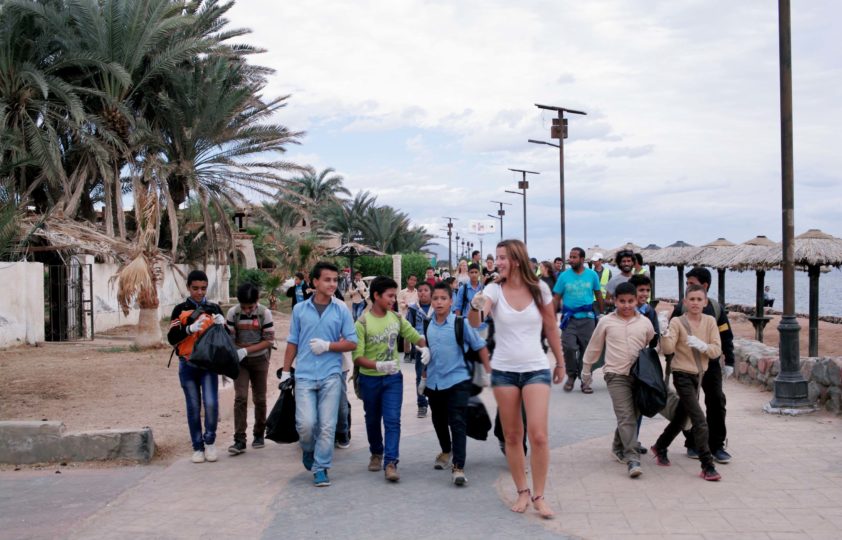
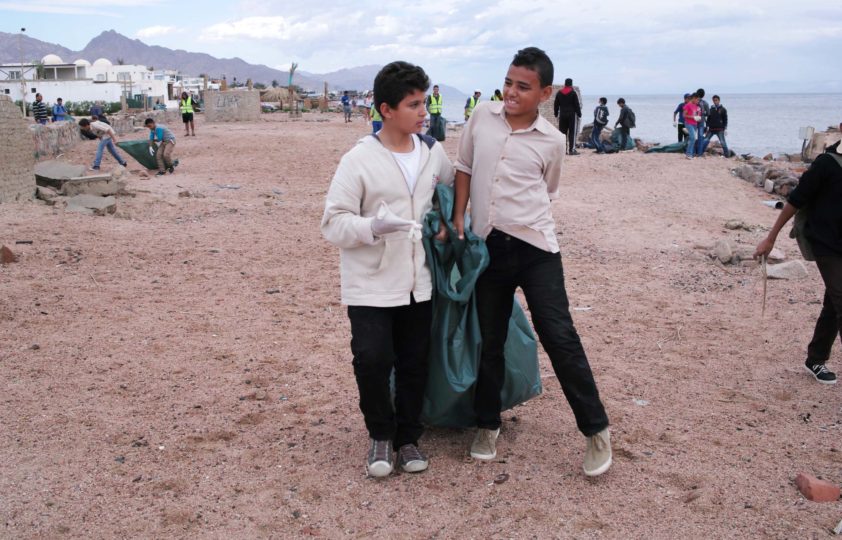
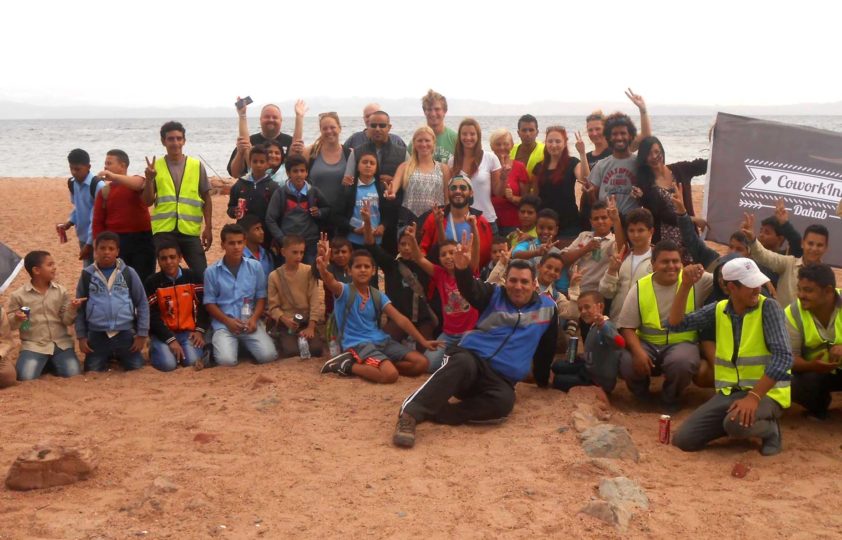

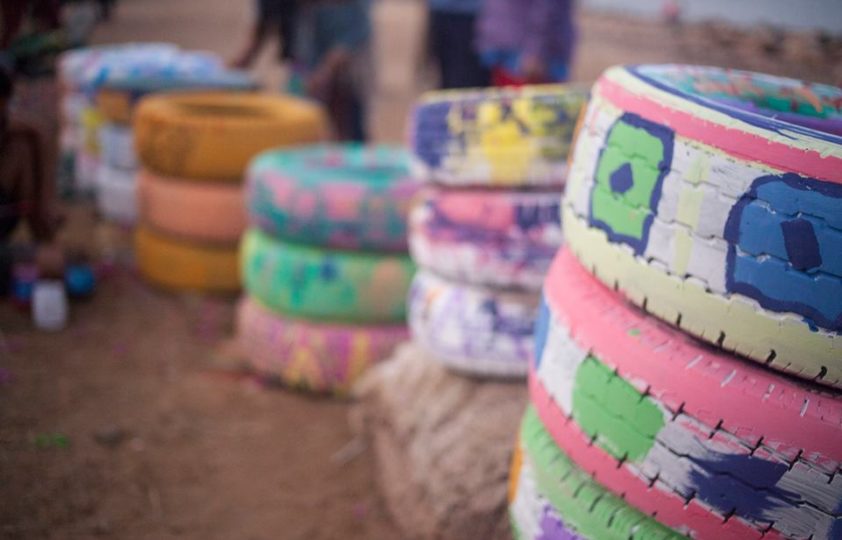


12 comments
Hello Mimi! Great Article! You visit Philippines too.
And speaking of Philippines, you try Bohol or Cebu.
It’s so nice there. If you need help.
Thank you!
Love these tips! It’s crazy to think of the emissions when we fly, which makes me feel a little better about my local road trips. these are all great reminders for us to be a little more mindful when we’re traveling, but also at home! i like to live by the motto “leave it better than when you found it”
Hey Steph,
you’re right. Sometimes we oversee all the beautiful destinations that are so close to us. I’m sure that only a few people have already seen every single corner in their own hometown. There’s so much to discover if we just open our mind for it.
Best regards,
Mimi
These are great tips and something most don’t think about while traveling.
Hey Samantha,
that’s true. It’s so easy to fly cheap nowadays, so that we often prefer a short flight over a long roadtrip. But when we consider the impact on environment, we should think about alternatives. I think the idea of compensating the Co2 emissions is a great start. But even if we don’t do this, there are so many small things that everyone can do: not throwing our rubbish on the ground or collect rubbish when we’re diving, for example. This costs nothing and if many people do it, it will have a great effect for our nature.
Best regards,
Mimi
Wow, what an exhaustive list! You really covered all the bases here, from keeping your destination authentic by informing yourself, buying local, and interacting with locals, to traveling in a more eco-friendly way. For most of us, I think the most important tip here is #2, CHOOSE CLOSER DESTINATIONS.
Most of us fail to realize the wonders that might be a few hours by train, bus, car, or best, by bike, from our homes. It’s good to look up the local sights and activities first, and save the big international flights for rarer occasions. Of course, many of us do fly far and wide quite often, so we should be conscious of that and reduce our CO2 footprint as much as we can in other parts of our travels and our lives.
I’m happy to say that all of my longer trips within Germany have been by charter bus (better than a car, but not better than taking an ICE train) or by ICE train, which is powered by eco-friendly electricity sources. My girlfriend and I are getting into bike touring now, the ultimate eco-friendly travel option. It will be difficult at first, but very rewarding as well. I encourage others to try it out as well! It’s certainly going to be a lesson in self-sufficiency and determination, but also wonderful chance for us to take in the beautiful Bavarian countryside :)
Once again, thanks a lot for this list – and for raising awareness of the somewhat hidden externalities of modern day travel.
Hey Tom,
that’s awesome! Bike trips are also in my opinion one of the best ways to travel. It’s not only healthier and more ecofriendly, but it’s also one of the best ways to experience our earth with full consciousness.
Will you drive the Alpenstraße in Bayern? I’ve heard this is one of the most beautiful ways for roadtripping. I’ll go there in July, too. Anyways, I’m sure you’ll have a great time.
And you’re absolutely right, a lot of wonderful destinations are so close to us. We just need to open our mind for it.
Cheers,
Mimi
This is a great article. I will remember your tips the next time I travel. And you are right, never give money to a beggar. Give him food instead.
Thank you Sheila! I’m glad you liked it! :)
Very complete artice Mimi. I try to spread these ideas and put them in practice in my life. I like to travel and teach and learn permaculture (I did PDC), eco-construction, natural farming and sustainability. It is a great plus to travel sustainable and even reduce to negative numbers our emissions and impact in general while travelling. I did long bike trips from Frankfurt where I was living to several places, my favorite was to Czech Republic (bohemian forest is an amazing destiny to bike tours). If someone is travelling to Colombia contact us to visit our sustainability project!
Hey Adrian!
Thanks for sharing your experience. It’s funny that you have been living in Frankfurt as well. I can imagine it was a great experience to drive with the bike to Czech Republic (my butt would probably hurt after four hours.) ;)
I think it’s not always “easy” to travel sustainably, especially if you only have limitted time and want to go somewhere farther away (e.g. for people who are in “regular” 9 to 5 jobs). I’m trying to fly less, but it can be pretty challenging sometimes – but I’m working on it. Though I think it’s beautiful to even start with small things and just to be aware that you actually CAN travel more sustainably. Everytime I’m traveling somewhere, I’m trying to give something back to the culture. It makes already a huge difference, even if it’s just one single person that we help. Or doing small things like picking up garbage etc. :)
Where is your sustainability project in Colombia? I’d be interested to read about this! I was just there in Februrary and want to go back next year.
Sunny greetings from Frankfurt! ;)
Great ideas! And here is also an easy way to care about our planet while traveling! For every booking that originates on bedandtree.com, one tree is being planted – without any charge to the user. Cooperation partners include the world’s largest booking platforms, such as Booking, Skyscanner, Expedia, TripAdvisor etc, hence you can plant trees when booking hotels, flights, cruises, rental cars etc.
It doesn’t cost you a single Cent, just one click of your mouse:)